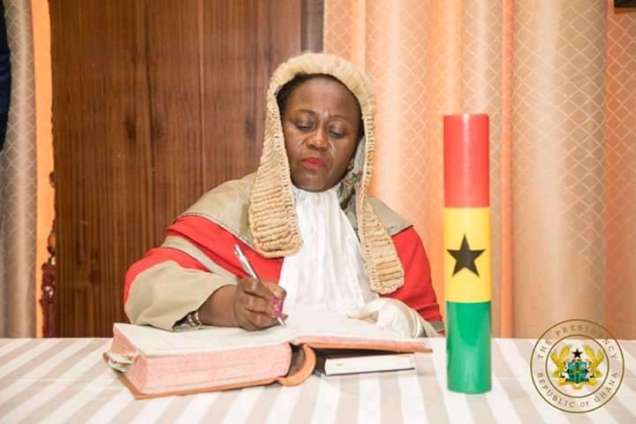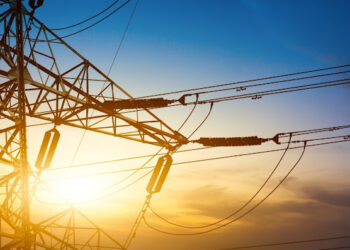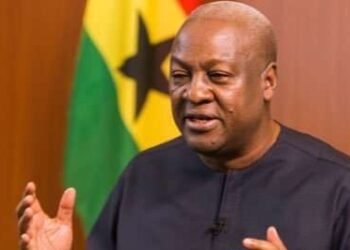Ghana’s constitutional stability is once again being tested, with growing calls for the removal of the Chief Justice sparking national debate.
At the forefront of this conversation is Dr. Kojo Pumpuni Asante, Director of Policy Engagement and Partnerships at CDD-Ghana.
He contended that the crisis facing the Judiciary goes beyond individual actors—it points to deeper institutional deficiencies that threaten Ghana’s democratic foundations.
Accordingly, Dr. Asante voiced serious concerns over the creeping politicization of Independent Governance Institutions (IGIs).
“Under the 4th Republic, the first notable case was the Commission on Human Rights and Administrative Justice (CHRAJ) head Mrs. Lauretta Lamptey’s 2015 removal for misusing public funds.
“The second was in 2017, when Electoral Commission (EC) Chair Charlotte Osei and her deputies were removed, primarily for procurement law breaches.”
Dr. Kojo Pumpuni Asante
According to him, the fallout from these dismissals weakened institutional credibility and cast a long-lasting shadow over Ghana’s electoral integrity.
Chief Justice Under Scrutiny Since 2020 Election Petition
The current spotlight on the Chief Justice can be traced back to the contentious 2020 presidential election petition.
The National Democratic Congress (NDC)’s rejection of the Supreme Court’s ruling and its claims of judicial bias under then-Chief Justice Anin Yeboah stirred public outrage.
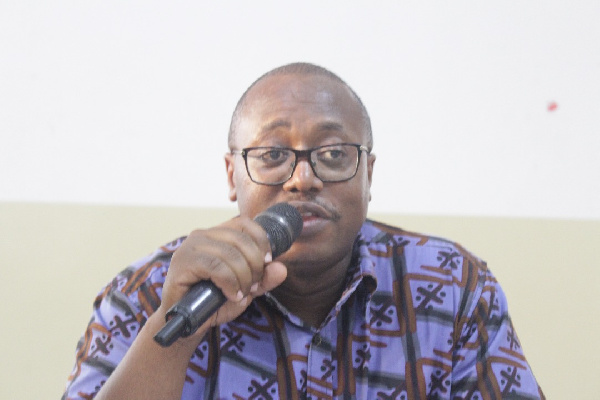
“Justice Anin Yeboah was Chief Justice during these events, retiring in 2023. Following the election petition, several ‘political cases’ arose, particularly from Parliament.”
Dr. Kojo Pumpuni Asante
The ruling in the James Gyakye Quayson case, in particular, became emblematic of what critics dubbed the “unanimous FC” trend—suggesting a pattern of uniformity in verdicts that reinforced perceptions of partisanship.
Allegations that the Chief Justice manipulated panel compositions only deepened the public’s mistrust.
Public dissatisfaction reached a tipping point when President John Mahama, then the opposition leader, openly declared that the NDC would no longer contest electoral matters in court due to a lack of trust in the Judiciary.
In 2024, tensions flared again during a standoff between the Speaker of Parliament and the Chief Justice—an episode that nearly plunged the nation into constitutional crisis.
Dr. Asante emphasized the seriousness of the issue, noting that the removal of a Chief Justice is an extremely consequential and weighty action.
He underscored that such a step should not be taken lightly, given its far-reaching implications for the independence and integrity of the judiciary.
“The Chief Justice oversees the final resolution of national disputes and anchors the Judiciary—the third arm of government. A constitutional deadlock involving this office could paralyze the state.”
Dr. Kojo Pumpuni Asante
The Problem: Not One Person — It’s the System
However, Dr. Pumpuni Asante warned against allowing the conversation of the Chief Justice to revolve entirely around the personalities of the individuals involved.
Instead, he urged a broader perspective that prioritizes the institutional implications and systemic issues at stake.
Focusing solely on personalities risks overshadowing the fundamental concerns about governance, constitutional order, and the rule of law.
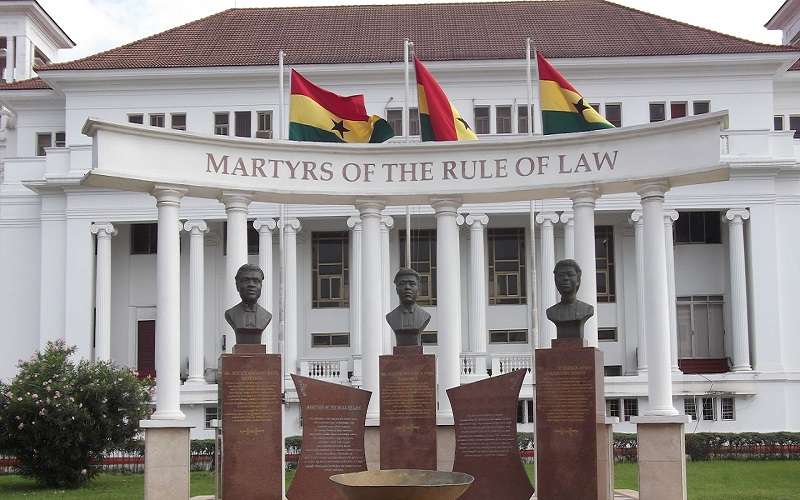
“Uncovering a Chief Justice’s political motives is difficult without undercover tactics like those of investigative journalist Anas Aremyaw Anas.”
Dr. Kojo Pumpuni Asante
He warned that simply replacing one Chief Justice with another could leave Ghana trapped in a cycle of recurring structural flaws and political baggage.
Instead, Dr. Asante advocated for sweeping legislative reform.
He suggested capping the number of Supreme Court justices, adopting randomized systems for empaneling judges, and creating transparent rules for judicial promotions and transfers. “There is a clear need to review and regulate the Chief Justice’s discretionary powers.”
Dr. Asante believes that Ghana’s ongoing Constitutional Review process provides the perfect opportunity to address these issues.
He drew regional comparisons, highlighting similar concerns in Sierra Leone, where presidential influence over supposedly independent institutions has sparked alarm.
Back in Ghana, he criticized the Council of State for failing to hold the presidency accountable. “Dismissals of IGI heads with little oversight undermine institutional autonomy.”
He also faulted Parliament for shirking its responsibility by handing politically sensitive matters over to the courts. “Since 2013, the Judiciary has been inundated with political cases, creating an environment ripe for accusations of partisanship.“
With the position of Chief Justice again under scrutiny, Dr. Asante warned that even a successful removal would not resolve the deeper crisis of legitimacy. “What Ghana truly needs is an institutional overhaul—not symbolic gestures.”
“Legislative reform is the more effective path.” It is, in his view, a call to courage, clarity and a reaffirmation of the spirit of the 1992 Constitution. Whether Ghana’s leaders will rise to meet this challenge remains to be seen.
A Crisis That Demands More Than Rhetoric
What Ghana faces today is not merely a clash of institutions or a debate over judicial personalities—it is a full-blown crisis of confidence in the country’s democracy.

The judiciary, once viewed as the final arbiter of fairness, is now mired in suspicion, with its credibility under siege from both political actors and the public. The citizenry cannot continue to treat these challenges as routine.
The calls for reform are not academic musings—they are urgent demands for survival.
If the nation’s leaders fail to rise to the moment, choosing partisanship over principle and expediency over equity, they will accelerate the erosion of the very institutions meant to protect citizens.
Ghana cannot afford to repeat the cycle of silence, scapegoating, and stagnation. The time for bold, structural reform is now—because the future of its constitutional democracy depends on it.
READ ALSO: Ramaphosa Names Special Envoy To Ease US Tensions

